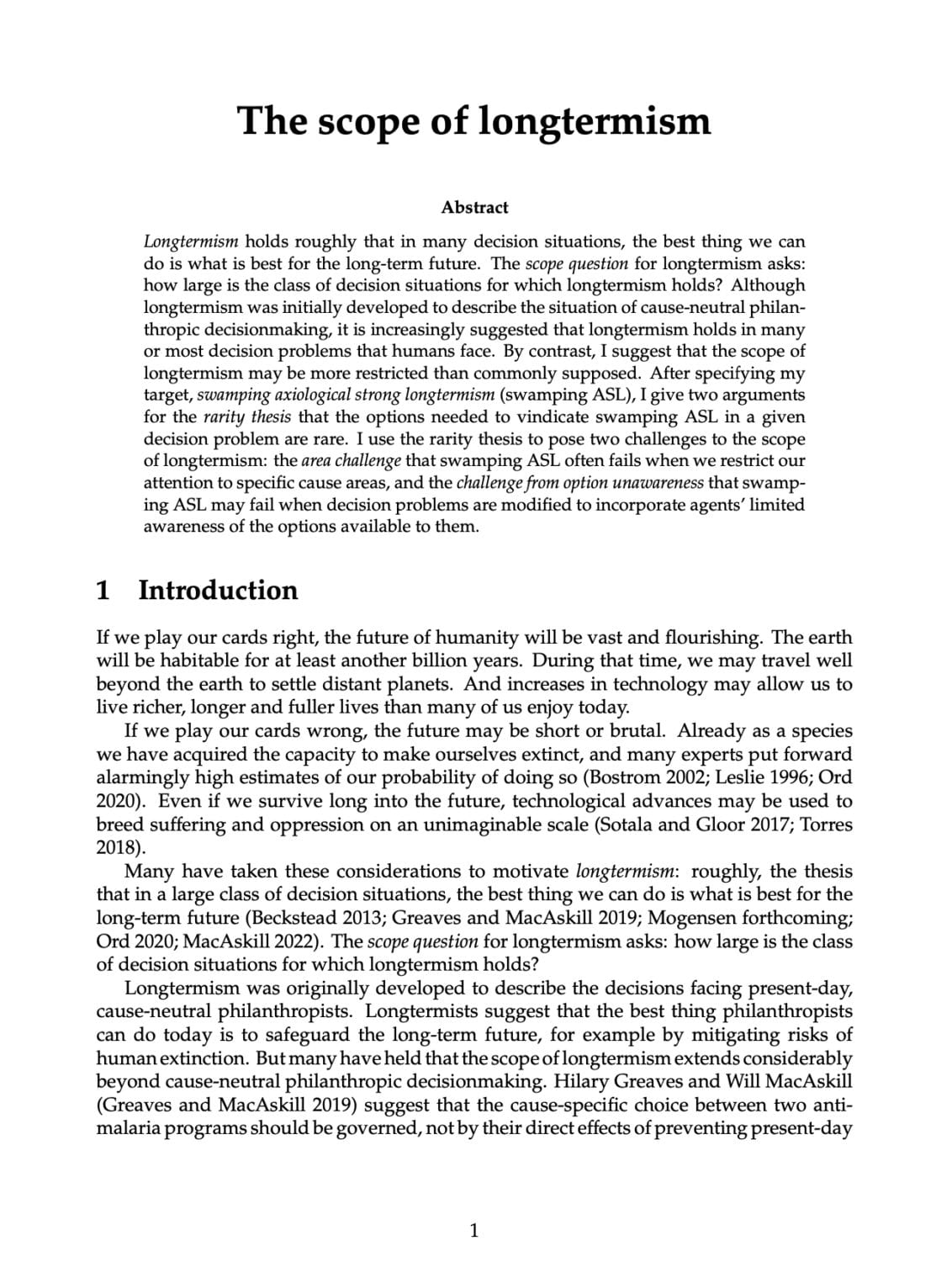The scope of longtermism
David Thorstad (Global Priorities Institute, University of Oxford)
GPI Working Paper No. 6-2021
Longtermism holds roughly that in many decision situations, the best thing we can do is what is best for the long-term future. The scope question for longtermism asks: how large is the class of decision situations for which longtermism holds? Although longtermism was initially developed to describe the situation of cause-neutral philanthropic decisionmaking, it is increasingly suggested that longtermism holds in many or most decision problems that humans face. By contrast, I suggest that the scope of longtermism may be more restricted than commonly supposed. After specifying my target, swamping axiological strong longtermism (swamping ASL), I give two arguments for the rarity thesis that the options needed to vindicate swamping ASL in a given decision problem are rare. I use the rarity thesis to pose two challenges to the scope of longtermism: the area challenge that swamping ASL often fails when we restrict our attention to specific cause areas, and the challenge from option unawareness that swamping ASL may fail when decision problems are modified to incorporate agents’ limited awareness of the options available to them.
Other working papers
A bargaining-theoretic approach to moral uncertainty – Owen Cotton-Barratt (Future of Humanity Institute, Oxford University), Hilary Greaves (Global Priorities Institute, Oxford University)
This paper explores a new approach to the problem of decision under relevant moral uncertainty. We treat the case of an agent making decisions in the face of moral uncertainty on the model of bargaining theory, as if the decision-making process were one of bargaining among different internal parts of the agent, with different parts committed to different moral theories. The resulting approach contrasts interestingly with the extant “maximise expected choiceworthiness”…
Misjudgment Exacerbates Collective Action Problems – Joshua Lewis (New York University) et al.
In collective action problems, suboptimal collective outcomes arise from each individual optimizing their own wellbeing. Past work assumes individuals do this because they care more about themselves than others. Yet, other factors could also contribute. We examine the role of empirical beliefs. Our results suggest people underestimate individual impact on collective problems. When collective action seems worthwhile, individual action often does not, even if the expected ratio of costs to benefits is the same. …
Will AI Avoid Exploitation? – Adam Bales (Global Priorities Institute, University of Oxford)
A simple argument suggests that we can fruitfully model advanced AI systems using expected utility theory. According to this argument, an agent will need to act as if maximising expected utility if they’re to avoid exploitation. Insofar as we should expect advanced AI to avoid exploitation, it follows that we should expected advanced AI to act as if maximising expected utility. I spell out this argument more carefully and demonstrate that it fails, but show that the manner of its failure is instructive…

